
What Plastic Packaging is Best for Cosmetics?
August 7, 2025 • Mike Lee
Struggling to choose the right plastic for your cosmetic packaging? The material you select impacts durability, appearance, and customer satisfaction.
The best plastic packaging for cosmetics depends on product needs: PETG offers clarity and chemical resistance, ABS provides strength and impact resistance, while PP is lightweight and cost-effective. Each material serves different cosmetic applications.
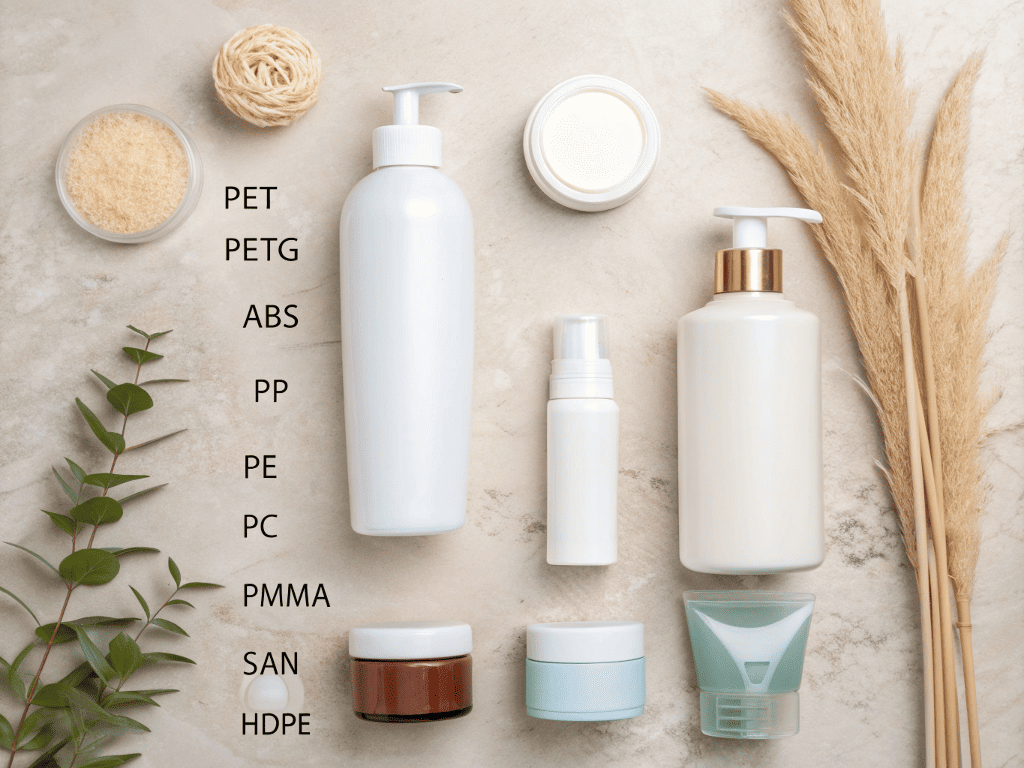
With so many plastic options available, making the right choice can be overwhelming. Let's break down the key differences between popular materials to help you decide.
ABS vs PETG: Which One is Right for Your Cosmetic Packaging?
Can't decide between ABS and PETG? Both have unique advantages that make them suitable for different cosmetic products.
ABS is ideal for durable, impact-resistant packaging like compacts and lipstick cases, while PETG excels in clear containers needing chemical resistance such as serum droppers and lotion bottles.
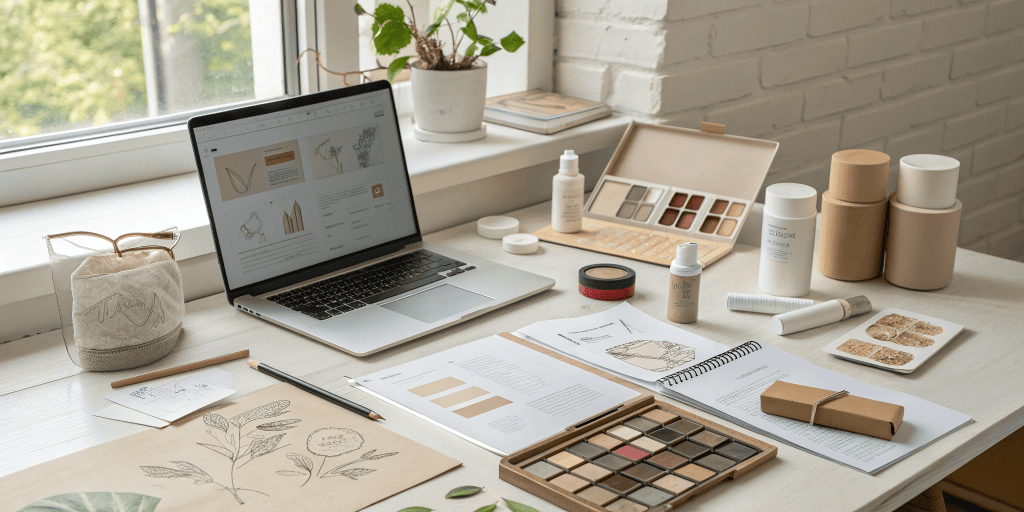
I've worked with both materials extensively and found their differences matter most in three areas:
-
Durability Comparison
- ABS withstands drops better (common for compacts/mirrors)
- PETG resists scratches better (important for clear bottles)
-
Chemical Resistance
- PETG handles oils/alcohols without clouding
- ABS may degrade with certain fragrances
-
Manufacturing Considerations
| Property | ABS | PETG |
|---|---|---|
| Molding Temp | 220-250°C | 200-230°C |
| Cycle Time | 30-45 seconds | 25-40 seconds |
| Post-Processing | Easily painted | Harder to decorate |
Last year, I helped a client switch from PETG to ABS for their travel palettes after numerous breakage complaints. The 20% thicker walls with ABS solved their shipping damage issues completely.
How To Find the Best Packaging for Your Cosmetics
Overwhelmed by material choices? Follow this practical approach to narrow down options.
To find the best cosmetic packaging: 1) Identify product compatibility needs 2) Determine budget constraints 3) Consider sustainability requirements 4) Evaluate decoration options needed for your brand aesthetic.
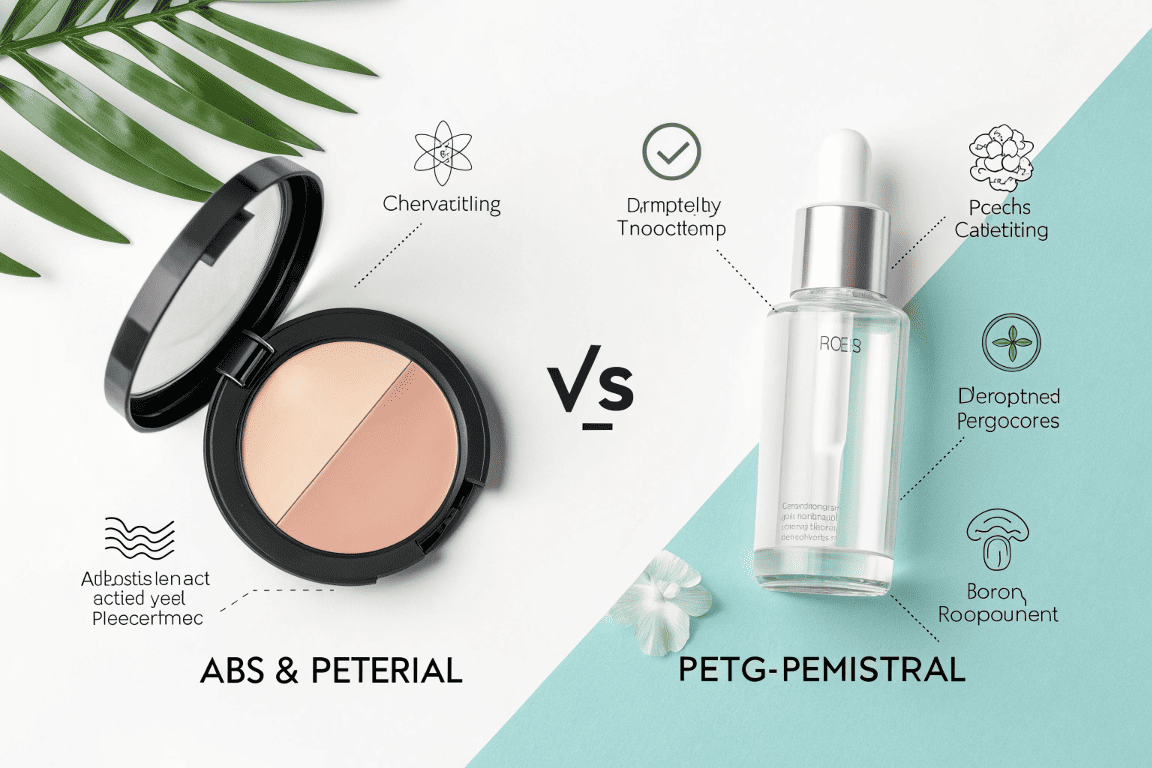
Through trial and error, I've developed this 4-step selection framework:
-
Product Compatibility Checklist
- Will contents react with plastic? (Essential for acids/retinols)
- Does product need UV protection? (Vitamin C serums)
- Required thickness for squeeze tubes?
-
Budget Factors
- Material cost per unit
- Minimum order quantities
- Tooling investment
-
Sustainability Priorities
Option Recyclability Carbon Footprint Cost Premium rPET High Medium 15-20% PLA Industrial Low 25-30% Standard PET Medium High Base -
Decoration Requirements
- Silk screening needs smooth surfaces
- Hot stamping works best on ABS
- In-mold labeling requires specific materials
A recent success story: By switching a client from PP to PETG for their toner bottles, we achieved both clarity improvements and 30% material reduction through optimized wall thickness.
Basic Knowledge Of 10 Common Plastic Cosmetic Packaging Materials
Need a quick reference guide to cosmetic plastics? Here's what I've learned from 5 years in packaging development.
The 10 most common cosmetic packaging plastics are: 1) PET 2) PETG 3) ABS 4) PP 5) PE 6) PC 7) PMMA 8) SAN 9) HDPE 10) LDPE - each with distinct properties for different applications.
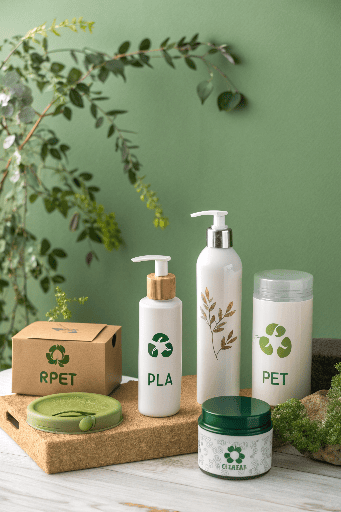
Let me share my hands-on experience with these materials:
-
PET (Polyethylene Terephthalate)
- Crystal clear bottles
- Excellent for liquids
- Recyclable but brittle
-
PETG (Glycol-Modified PET)
- Improved impact vs PET
- Chemical resistant
- Slightly higher cost
-
ABS (Acrylonitrile Butadiene Styrene)
- Ultra durable
- Premium feel
- Easy to color
-
PP (Polypropylene)
- Affordable
- Flexible
- Good for tubes
-
PE (Polyethylene)
- Soft squeeze bottles
- Excellent moisture barrier
- Limited clarity
-
PC (Polycarbonate)
- Extreme clarity
- BPA concerns
- Being phased out
-
PMMA (Acrylic)
- Glass-like appearance
- Scratch prone
- High-end use
-
SAN (Styrene Acrylonitrile)
- Alternative to ABS
- Better clarity
- Less impact resistant
-
HDPE (High-Density PE)
- Opaque bottles
- Good stiffness
- Recyclable
-
LDPE (Low-Density PE)
- Soft tubes
- Excellent squeezability
- Limited structure
Material Selection Quick Reference:
| Application | Top Material Choices |
|---|---|
| Lipstick Cases | ABS, SAN |
| Serum Droppers | PETG, PMMA |
| Shampoo Bottles | PET, HDPE |
| Cream Jars | PP, ABS |
| Travel Size Containers | PETG, LDPE |
Conclusion
Choosing the right plastic for cosmetic packaging requires balancing durability, aesthetics and cost. ABS offers superior strength, PETG provides clarity and chemical resistance, while PP remains the budget-friendly workhorse. Match material properties to your specific product needs for optimal results.
Written by
Mike Lee
You may also be interested in:

How Do You Choose the Right Sunscreen Bottle Packaging for Your Brand in 2025?
You have a fantastic new sunscreen formula, but now you're stuck. With so many tubes,

How Can Brands Go Green With Sunscreen Packaging Without Sacrificing Style?
You want to make your sunscreen packaging more eco-friendly, but you're worried. You see "green"

What Are the Top 5 Sunscreen Bottle Trends Shaping the Cosmetic Packaging Industry in 2025?
You're planning your 2025 product line and see competitors using everything from sticks to sprays.
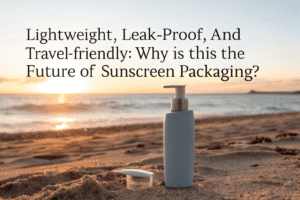
Lightweight, Leak-Proof, and Travel-Friendly: Why Is This the Future of Sunscreen Packaging?
You have a fantastic sunscreen, but your customers complain that the bottle is too heavy,